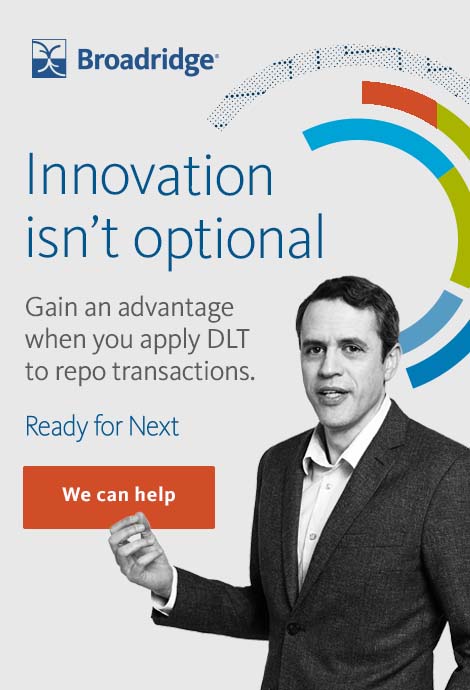Ownera has been working to bring the industry together to open up distribution for the world of tokenisation, says Anthony Woolley, head of business development and marketing. He speaks to Carmella Haswell about the firm’s open approach to realise this future
Technology firm Ownera is pushing the industry towards what it calls an “open approach”, as it attempts to unlock and digitise the world’s largest markets, enabling connection between different providers, and allowing businesses to scale.
“You can move faster alone, but further together,” believes Anthony Woolley, head of business development and marketing at Ownera. He implies that to be able to collateralise against markets such as real estate, and the highly-manual offline markets of private equity or private debt, the industry must favour the open approach.
He states: “Firms can have people build unilateral solutions, and they can achieve a level of success with that, but they will only ever go so far.”
The ability to scale
Ownera launched in 2020, and has been moving “at quite a pace” since its formation. The firm has been working to bring the industry together to solve the global problem of distribution for the world of tokenisation for finance, a task that is “no trivial matter”.
According to Woolley, the firm spent the best part of 2020 bringing together more than 80 institutions to develop an open peer-to-peer (P2P) protocol called FinP2P, that enables distribution rails to unlock tokenisation. In parallel, the team has been working with these participants to develop this protocol and form the underlying technology for its practical application.
“As a firm, we knew that industry participants were excited about tokenisation, it was a popular topic of discussion and institutions understood its potential to transform the industry,” Woolley confirms. “However, we were also aware that as these tokenisation solutions came to market, organisations would run into the problem of achieving distribution at scale.”
The tokenisation platforms coming to market at this time had assets and investors, as well as custody and payment solutions. However, these aspects were “sitting as islands” — that is to say, they were vertically integrated solutions — therefore causing distribution issues.
While the team at Ownera continued to develop the underlying technology to tackle this challenge and create its open standard — subsequently incorporating this technology into the proof of concepts and pilots of other large institutions — the real challenge for the firm has been taking this project to production. This has been the company’s priority throughout 2023 and 2024.
Woolley adds: “Currently, we have many projects going into production, and we see this scaling exponentially over the next year as we enable distribution for this world of tokenisation.”
Referring to Ownera’s own ability to scale, Woolley says the firm has worked to prove that the FinP2P protocol and the company’s distribution rails would be supported by the industry. Ownera received backing from several institutions, including J.P. Morgan and US Bancorp, which led to a Series A funding round totalling US$20 million.
Ownera has also identified an “evolution” on the demand side — where wealth managers, digital exchanges and private banks, which the company was targeting, are now working with Ownera. Woolley says: “That is the key to connecting supply and demand. Where two or three years ago people were still experimenting with the technology, now it is all going to production.”
Connecting industry players
For any firm wanting to become more interoperable, there is an underlying risk of creating further fragmentation across the market. Ownera is working to ensure its approach is complementary to other industry standards.
Its core objective is to enable interoperability for tokenised assets so that platforms can interconnect. He adds that the firm’s projects are not just about “the technical interoperability of connecting technology platforms” — when referring to interoperability, the firm speaks of connecting industry players.
Ownera provides routers to different types of industry players so that they can connect P2P to unlock distribution, and done so “in a way that the regulated financial services industry understands”. In avoiding fragmentation, the firm says it does not sit in the financial transaction, or introduce new regulatory structures or regulatory ambiguity.
Woolley explains: “Effectively, our routers enable institutions to connect pools of liquidity and connect to different market participants. This is the right balance to bring parties together. We are operating with our software routers to enable institutions to interconnect, our P2P approach is what is enabling the industry to consolidate at a global level.”
The firm’s efforts to connect to different industry parties is evident through its 18 month long collaboration with Wematch.live, J.P. Morgan and HQLAX. This collection of firms are currently developing a “novel solution” that will enable the execution of repo transactions, executed on the Wematch platform with delivery-versus-payment (DvP) settlement across two different distributed ledgers.
Speaking to Securities Finance Times, Guido Stroemer, co-founder and CEO of HQLAX, says: “As we build out the ecosystem of distributed ledger technology (DLT) platforms, we do not want to re-create the fragmentation of legacy securities settlement infrastructure.
“Interoperation across DLT platforms is paramount for the overall success of the global DLT ecosystem, and the collaboration across HQLAX, J.P. Morgan’s Onyx platform, Wematch, and Ownera, is an excellent example of an important interoperability use case.”
Woolley exclaims that it “has proved to be one of the most exciting projects” for the firm. “Our approach with our routers is completely agnostic to the type of asset, the type of security, and the use case,” he continues. “This technology is applied much more broadly than just the world of securities finance. But within securities finance, we found our technology could be provided and applied to a strong business case and demand that was out there.”
Ownera says, through its routers, it has solved how to orchestrate between different environments — in this case, between technology platform HQLAX and J.P. Morgan’s Onyx team. HQLAX works to unlock digital collateral, holding digital records of collateral with trusted third parties, which can begin to mobilise the collateral within that context. J.P. Morgan meanwhile, presents digital cash solutions through its tokenised deposit solutions.
Ownera provided a router to HQLAX to connect to its digital collateral platform, and a router to J.P. Morgan to connect to its blockchain deposit account platform. Ownera’s routers orchestrate DVP transactions between those two different environments. That is then exposed to the market through the trading platform, which is the third party in that financial transaction.
Wematch provides a user interface to the trading parties to manage their on-chain asset balances — cash and collateral — and to negotiate and agree to repo transactions.
This business case, Woolley highlights, “starts to unlock the intraday repo market for true management of intraday liquidity”, whereas in the past people have been subject to overnight interest rates. As participants wait for the platform's release in 2024, the collaborators will now focus on meeting legal and regulatory obligations to ensure the group “productionise” it properly.
Woolley predicts: “Over time, we see this expanding so that we can connect between different providers of digital collateral, or providers of digital cash. Everybody understands that it benefits the industry as a whole to be able to unlock, effectively securities finance, this intraday mobility of collateral at an industry-wide level.”
A bright new future
As a number of institutions strive for tokenisation, the market is also seeing pushback against its advancement. One of the largest points of concern surrounding this is the practicality of integrating tokenisation into the existing infrastructure.
While the industry has the complexity of myriad systems and processes, built over many years, Woolley asks, “if somebody is building a tokenisation solution in isolation, how will that integrate, and how do we get from where we are today to this bright new future?”.
Woolley believes Ownera has a solution which will enable participants to move incrementally towards that tokenised future. He insists: “While the pushback relates to how you make the old work with the new, that is something we feel that we tackle well. We can enable existing investors and trading platforms to interface into this new world, without having to worry about bits and bytes and blockchains, they just need a router.”
Ownera routers are designed to enable orchestration using existing settlement processes. It can settle against existing payment rails, or the firm can provide the ability to orchestrate instant settlement with various forms of digital cash, the company says.
Another key concern for industry members refers to regulatory ambiguity — some participants believe that regulation may not be ready for tokenisation. Woolley argues that technology is not regulated, it is the business cases and the implementations that are.
Woolley reassures that Ownera is here to address all of those concerns, so that firms can “see a path to not just where they are today, but what they do tomorrow, next month and next year to realise that future”.


